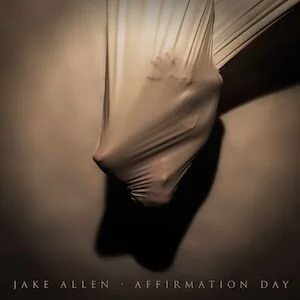World Goes Round - S.T. (Album Review)
If you have a healthy obsession with all things music, then I’m pretty sure you will have been drawn into conversations on the subject of the unreleased album (music fans love to obsess about what might have been). Musical history is awash with lost sessions, lost tapes and probably the odd lost mind, as fans debate the existence of some unheard masterpiece. Some “lost” albums do eventually appear as artists and labels raid the vaults (Neil Young) while others are probably figments of a fertile imagination relating to recording sessions that might have produced an album if completed successfully (who wouldn’t want to hear Jeff Beck’s Motown sessions from 1970?). Others have crept out via other means (KISS/Wicked Lester). Whatever the reason, music fans love to talk about music almost as much as they like to listen to it, which brings us to a late 80s band going by the name of World Goes Round.
The World Goes Round story is an interesting one and their 1989 album is a time capsule that perfectly captures a sound that ruled the charts in the late 80s. When original producer Tommy Vicari contacted guitarist Marty Walsh and asked the studio veteran if he still had the tapes of the album they did in the late 80s he started the ball rolling. Walsh dug deep into his archive and unearthed a cassette of the original album mixes which he was able to convert to digital and send the files to Vicari. Although Tommy Vicari isn’t a name that might be instantly familiar to the man in the street the producer/engineer has had a long career in music/film and TV including mixing the sound for The Oscars telecast since 1996. He was also the man the record company tasked with looking after/executive producing the debut album for one Prince Rogers Nelson (I’m willing to bet Tommy has a story or two to tell).
Marty Walsh got his first big break when he landed the job as touring guitarist in the mid-70s with Seals and Crofts the duo who’d enjoyed a massive hit with ‘Summer Breeze’ in 1972. Throughout the 1980s Walsh would become an in-demand session guitarist, humbly referring to himself as a second call session guy (the guy a producer calls if Steve Lukather, Michael Landau, Tim Pierce or Dann Huff were otherwise engaged). Session work in the 1980s was a tough, and very competitive, gig and Walsh worked with a host of artists, producers and songwriters including Frank Musker and Jeff Hull who’ll become a big part of this story. Walsh has played on hundreds of sessions with the guitar solo on Donna Summer’s ‘She Works Hard For The Money’ a definite highlight and as good a starting point as any for those looking to check out his career. He also recorded/toured with Supertramp and was in John Fogerty’s band for his ‘Eye Of The Zombie’ tour. All this is pretty impressive stuff, but I just wanted to touch on Walsh’s work with Western Front a band that included vocalist Moon Calhoun (The Strand) and Scott Gorham of Thin Lizzy fame. When the Western Front record deal fell through Gorham would return to London, form 21 Guns and release the superb ‘Salute’ opus. One of the songs from the Western Front sessions ‘1000 Nights’ was later recorded by the Michael Thompson Band on the ‘How Long’ album, an absolute classic of the AOR/Melodic Rock genre. Michael Thompson is also best known for his work as a top session guitarist which completes this circle nicely.
Frank Musker is a British songwriter probably best known for the song that launched Sheena Easton (Modern Girl) while I've always enjoyed his co-write with John Waite on ‘Back On My Feet Again’ a big hit for The Babys in 1980. Musker had also penned ‘Too Much Love Will Kill You’ with Queen guitarist Brian May and singer/songwriter Elizabeth Lamers which was initially set for inclusion on Queen’s 1989 release ‘The Miracle’ but the original recording with Freddie Mercury wouldn’t see the light of day until the posthumous ‘Made In Heaven’ album in 1995 (In the meantime May would record and release the song on one of his solo albums). Lamers is a backing singer and in-demand voice actor whose credits include the hit TV show Animaniacs - a show that featured another great singer with a melodic rock background in Load & Clear vocalist Jess Harnell). Musker was also working with the aforementioned Jeff Hull, a songwriter and producer best known for ‘Piano In The Dark’ a top ten hit for Brenda Russell. At some point in the late 80s Musker, Hull, Lamers and Walsh found themselves at Musker’s LA studio and, as Walsh puts it, a quasi-band emerged. The resulting album was shopped to various labels but, unfortunately, no offers were forthcoming. The four members of WGR would return to their respective busy careers until, some thirty years later, Walsh went looking for that tape.
As I mentioned earlier, World Goes Round perfectly captures the 80s sound. WGR isn't a new band trying to sound retro; WGR was recorded at the time and sounds like it but in a good way. The production is big, bold and punchy. It has that pristine, slightly clinical, synthesized sound that records from the late 80s tend to exhibit, with electronic drums to the fore and a host of synths supplying many of the bass, keys and horn parts. It's a sound I've always enjoyed, possibly because I was there at the time buying records, and I would always take it over the ear bleed compression of many modern recordings. The punchy ‘Big House’ with its stabbing keys, pounding rhythm track and crunching guitar chords features lyrical references to a shrinking world and the loss of the Amazon rainforest which isn't something you would necessarily expect to hear on a pop record. Some things may change while many, unfortunately, do stay the same. Admittedly on occasion said lyrics are delivered with a late 80s twist, “There’s a man in East Berlin. All he wants is a westbound train” reminds us that WGR was recorded with the Berlin Wall still in place and adds to the album’s charm. ‘Put It On The Line’ shows the breadth of styles available to the band. It preaches a positive message of self-empowerment “Show them what you’re made of, put it on the line". The vocal arrangement is excellent and I’m surprising the song never found a home back in the day. Marty Walsh layers multiple guitars before adding a little crunch to a rather lovely middle eight emphasising the depth of songwriting talent on show. Interestingly, when Musker and Walsh originally penned the song, they thought it would be a good fit for Michael McDonald. Unfortunately, the ex Doobie Brothers passed as the tempo didn't quite fit into his planned album.
WGR set their stall out with opener ‘Rebel Heart’ as Musker and Lamers share the lead vocal backed by injections of synth horns as the keys bubble underneath and Walsh flits in and out of the mix with light funky licks, crunchy rhythm tracks and even finds round for a smart solo on the outro. ‘Joy and Pain’ follows and the attention is again on the interplay between Musker and Lamers with Lamers doing a great job of sounding like Madonna in her early days. ‘Joy and Pain’ really does sound like it should have been a smash in the 80s and you’ve got to love Walsh’s jazzy solo. WGR toughen things up markedly on ‘Great Talker’ - reminding me of Janet Jackson circa Rhythm Nation in attitude and overall approach. It perfectly showcases Walsh’s guitar playing as he mixes up multiple funky guitar lines and fills with bone-crunching power chords providing the perfect complement to Lamers’ light, airy vocal. The guys also show they can deliver a pop ballad with ‘Once Around The Sun’ featuring another excellent Lamers vocal and a deceptively subtle arrangement. The album continues with the emphasis shifting slightly to a more light pop approach with ‘Round The World’ and ‘Please Please’ both built on surprising simple but effective chorus hooks. The laid back ‘Can’t Let Go’ is really nice and features some finely judged vocal harmonies and what sounds suspiciously like an accordion…Walsh’s guitar crunch returns over pulsing synths for the funky ‘Puttin’ Down Roots’ which again benefits from an excellent vocal arrangement as Musker and Lamers bounce off each other in fine style.
World Goes Round perfectly captures the sound of late 80s pop. All involved are veterans of the period and have a real affinity for the sounds of the time and it shows. I’m sure the band and Tommy Vicari had work to do to get the original recordings ready for release after all these years, but whatever work they did to tweak things and complete tracks it was done so sympathetically you can’t see the join. If you like the sound of the late 80s, or just enjoy well-played pop of any era, then this is for you. Now I wonder if all those involved can do a similar job on that “lost” Simon Darlow record…
World Goes Round is released on January 22, 2021. The album will be available on all digital formats, and on vinyl, via Viper Records.














From his self-titled, triple platinum-selling debut album in 1987 to ‘Limitless’ in 2020, Richard Marx has had an unerring knack for a melody (not to mention a pretty wonderful voice). Marx's songwriting skills have enabled him to stay relevant throughout his nearly forty-year career. His sound has evolved over time, with the punchy guitars of the late 80s replaced by a smoother, more R&B/pop sound tailored to radio and streaming services. Along the way, his song craft has been in high demand, co-writing and/or contributing songs to a startling array of artists from Kenny Rogers to Keith Urban via NSYNC, Luther Vandross and Vixen. An impressive CV, but where does that chameleon-like ability to pen hit songs come from? How does he do it? Hopefully, ‘Songwriter’ might give us a bit of a clue as we take a journey through twenty tracks encompassing four genres; pop, rock, country and ballads.